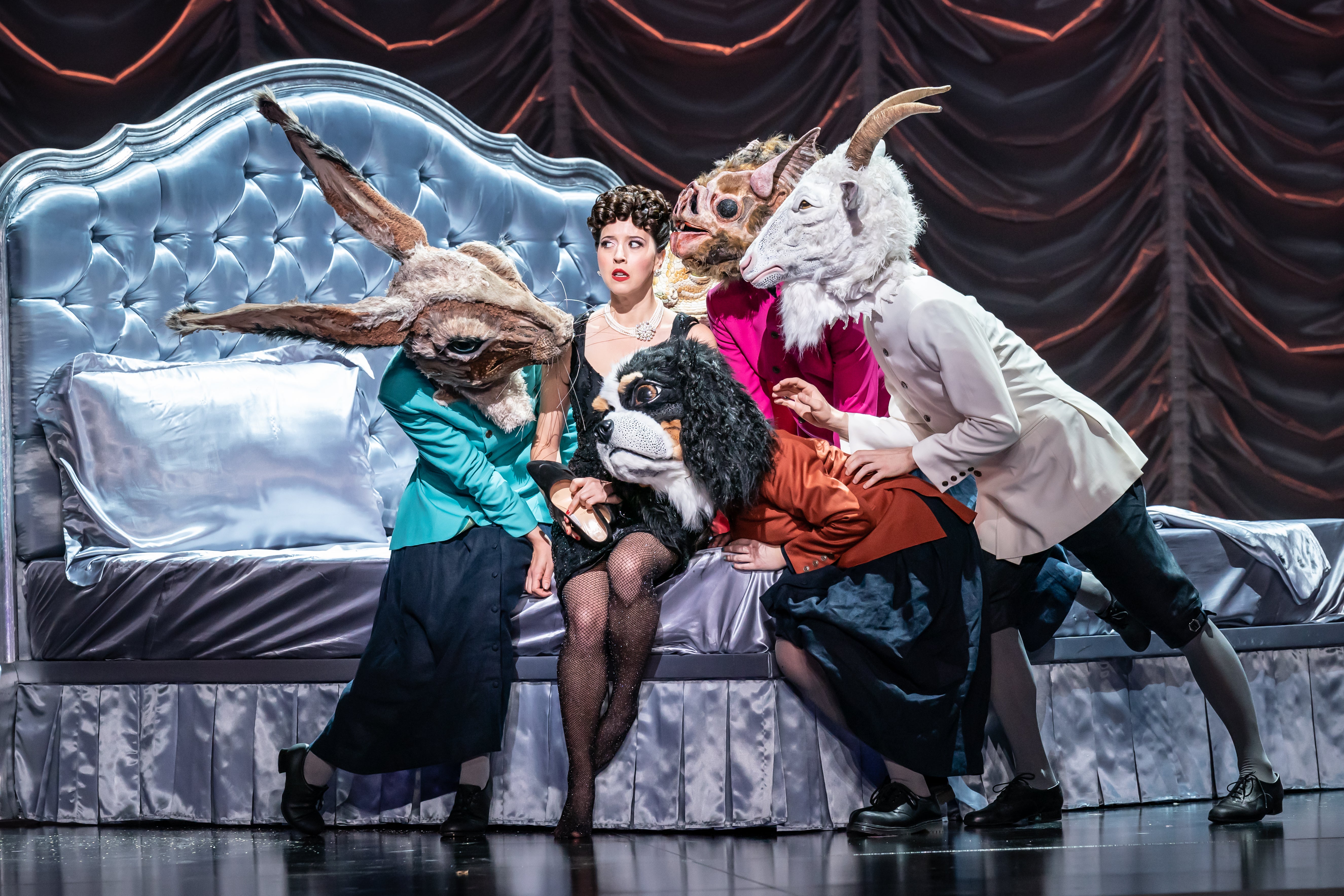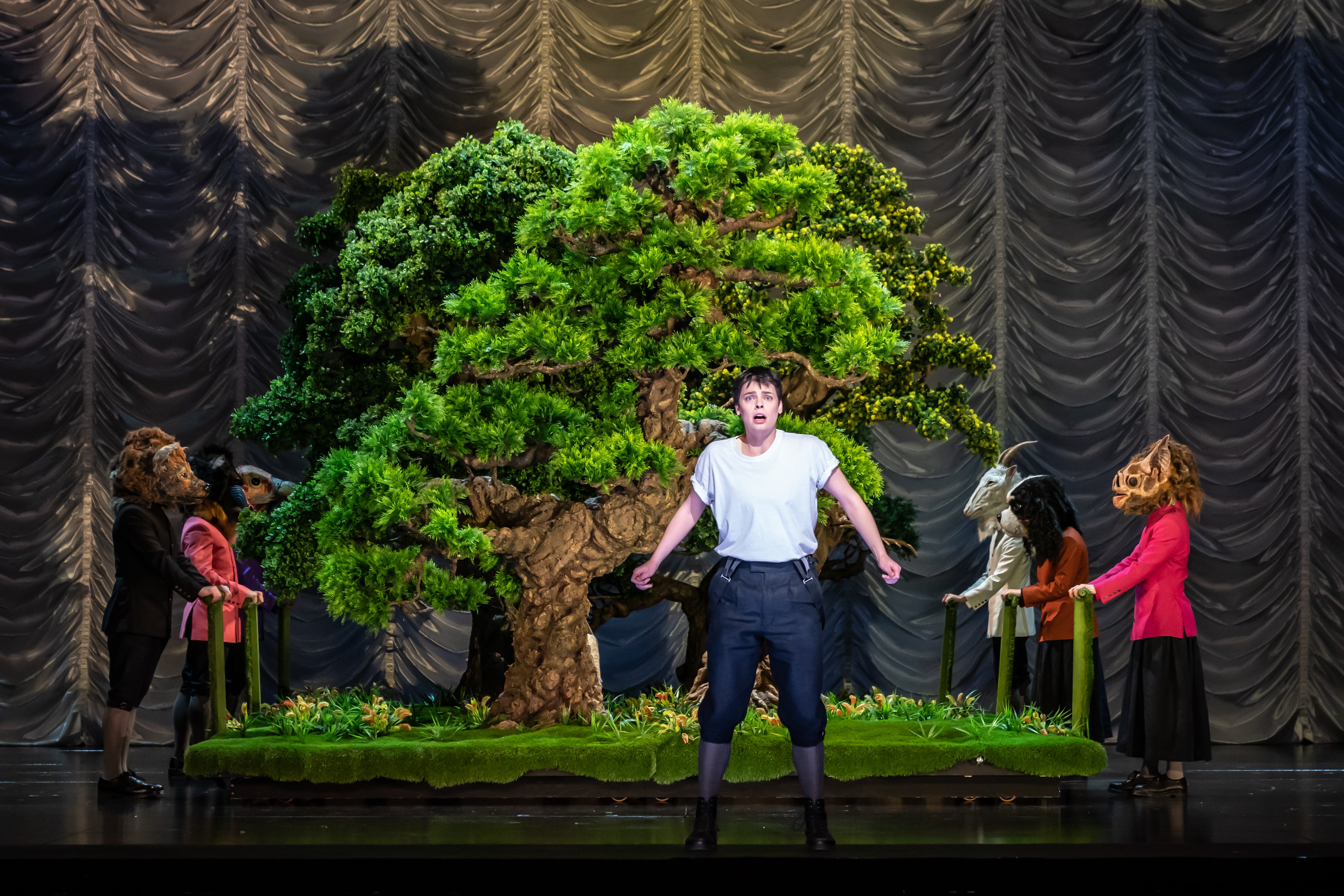Alcina review: A morality tale full of sexual and musical magic
With a plot that makes the brain reel, Handel’s music itself becomes the drama in Richard Jones’s production

Time was, not so long ago, that Covent Garden and the Coliseum were in friendly and fruitful opposition. While the Royal Opera did its gold-plated thing, English National Opera – like David facing Goliath – put up a feisty menu of music-theatre, drawing on interesting works the ROH wouldn’t touch.
With ENO now facing extinction after a 100 per cent funding cut last week (it will instead be given £17m over three years to relocate outside of London), it behoves us to treasure everything we can get at Covent Garden – though the current Arts Council cuts have bitten deep there, too. Opera on a shoestring can be marvellous, but while grand opera may be an expensive commodity, at its best it speaks to everyone. The potential loss of a major opera house – even if it has been mismanaged for years – is a shocking cultural impoverishment.
The ROH has now unveiled the latest and greatest work in its Handel series – Alcina. It’s about magic, both musical and sexual, and about the breaking of those spells; it’s about jealousy and unbearable frustration, and its plot makes the brain reel. Predatory Alcina has fallen in love with the knight Ruggiero, and has detained him on her enchanted island. Blinded by obsession, he doesn’t know the danger that awaits him when she tires of her infatuation: she turns her discarded lovers into trees and wild beasts.
Ruggiero’s jilted partner Bradamante arrives (cross-dressed and disguised as “Ricciardo”) to rescue him. But she, too, is in danger, because Alcina’s randy and imperious sister Morgana fancies “Ricciardo”, and has sacked her lover Oronte, who is now desperate. Meanwhile, Oberto, Bradamante’s young nephew, has come to the island in search of his abducted father Astolfo... and that’s only the start of the story.
This morality tale about manipulative behaviour and shattered relationships wasn’t the main attraction for Handel’s London audience in 1735. What they most loved was the spectacle, the music, and the thrill of hearing the brilliant singing of celebrated castrato Giovanni Carestini as Ruggiero, and of William Savage, the equally celebrated treble, as Oberto.
Our Ruggiero may not be sung by a castrato (mezzo Emily D’Angelo takes the role), but the work is a timeless vehicle for Handel’s unique gift for expressing in music every shade of human emotion.
Staging this fantastical work is a challenge most recently taken on at Glyndebourne by director Francesco Micheli, who told the story as a cabaret in a downtown strip joint called Alcina’s Island. Richard Jones’s new production for Covent Garden – in conjunction with the New York Met – seems to start off in a similar vein, but while Micheli’s version laid out the story’s emotional geography with crystal clarity, Jones’s interpretation starts off fuzzy and confusing.
When his framing concept becomes clear, however, it does make sense: his Alcina’s realm of libertinage has emerged from a society ruled by an 18th-century American Puritan sect. Here the enchantress presides over transfixed suitors in her kitsch boudoir, while the medley of birds and animals who are her past victims run riot in the jungle outside (exquisitely designed and lit by Antony McDonald and Lucy Carter). I won’t spoil the prospective punter’s pleasure by revealing the witty coup de theatre with which he finally puts all his directorial cards on the table.
Jones has non-verbal fun throughout, with his animals during the long arias, and with his characters – played by a fine posse of singing actors – in their desperate amorous struggles. Mary Bevan’s rapacious bovver-booted Morgana is a brilliant comedy turn, while the jilted and long-suffering Oronte (Rupert Charlesworth) makes a poignantly woebegone foil. Varduhi Abrahamyan takes a while to warm up as Bradamante, but Emily D’Angelo’s Ruggiero is a graceful creation throughout.

In the first act, Cuban-American soprano Lisette Oropesa brings a somewhat stereotyped quality to the title role, but when her power begins to crack, it’s as though a switch has been thrown to reveal her unhappy insecurity. The greatest pleasure of the evening – thanks to Christian Curnyn’s direction from the pit, and his superb soloists on violin and cello – lies in the way that Handel’s music itself becomes the drama, unlocking some magnificent performances.
Oropesa’s delivery of her aria “Ah, My Heart”, when her world has fallen apart, is ravishing, as is the one that follows it, in which the music itself seems to have a nervous breakdown. Flighty Morgana’s moods turn on a sixpence as Bevan tries all her tricks to call her bruised and embittered lover Oronte to heel, and their sexual reconciliation is a wickedly suggestive blend of comedy and lust.
D’Angelo’s delivery of the sublimely simple aria “Green Meadows” – a eulogy on the evanescence of beauty – creates one of those Handelian moments when time stands still.
Comedy, pathos and tragedy fleetingly command the stage by turns, as the wild beasts recover their human form and the drama intensifies to its sunlit denouement – to ecstatic applause, with the curtain calls going on and on.
‘Alcina’ is at the Royal Opera House until 26 November






Join our commenting forum
Join thought-provoking conversations, follow other Independent readers and see their replies
Comments